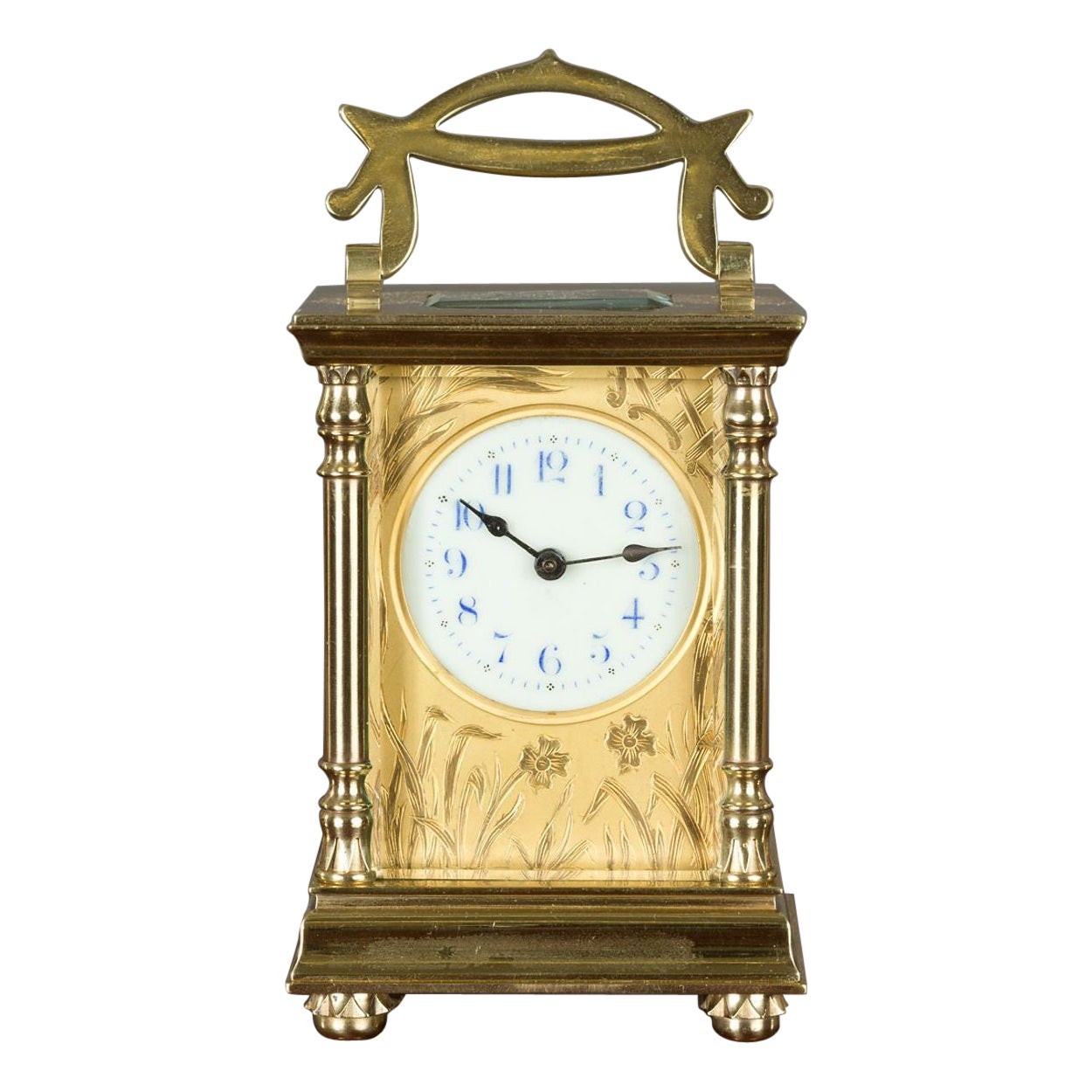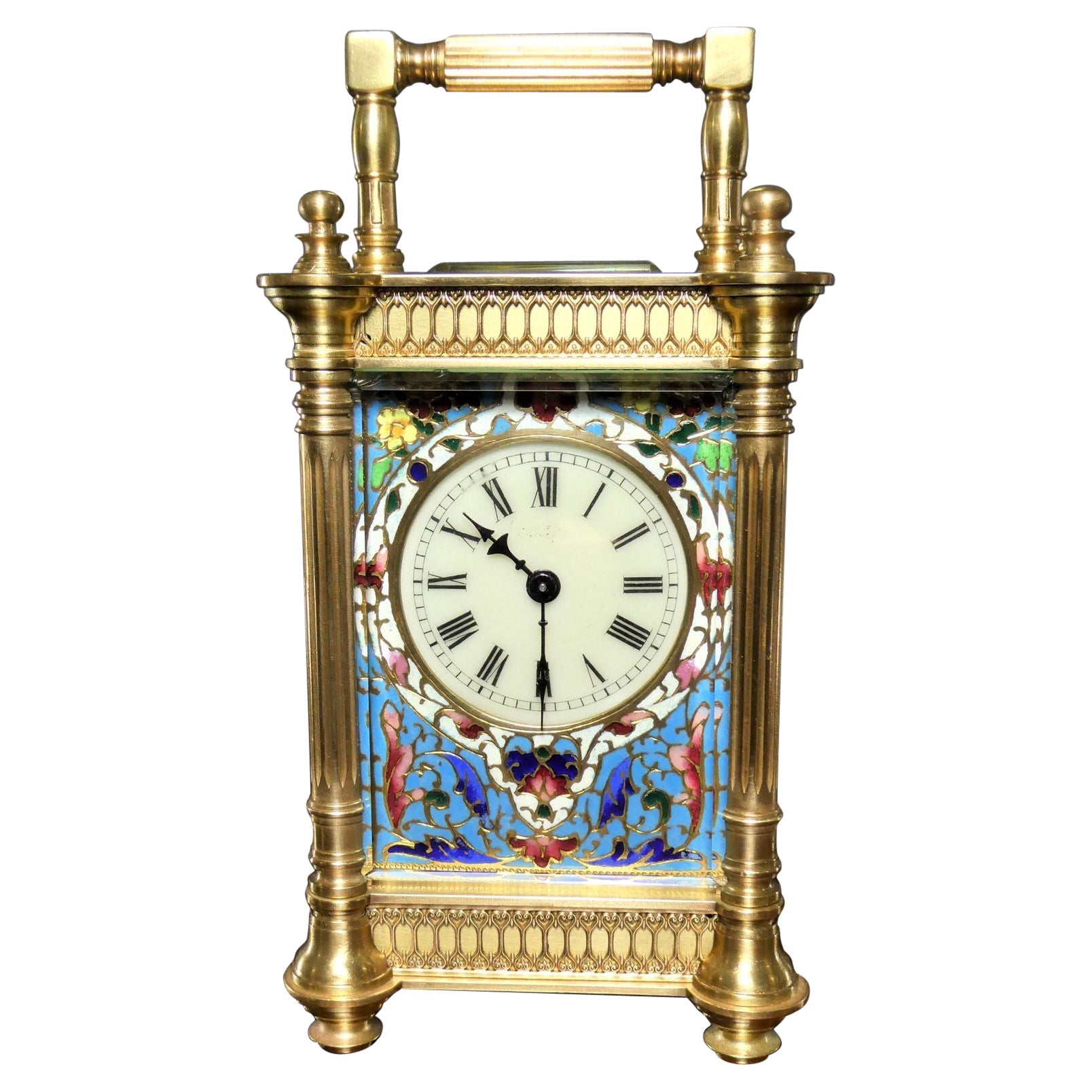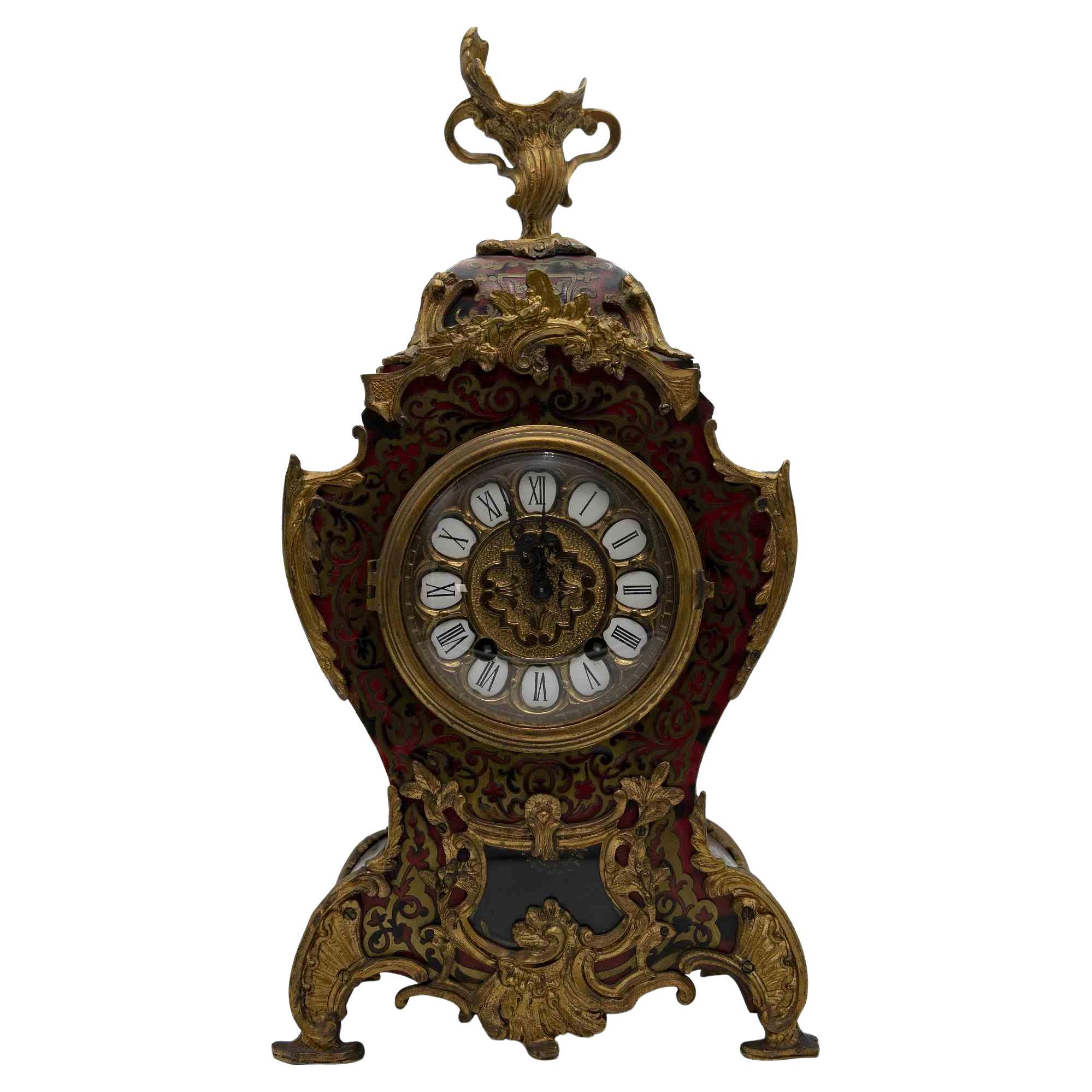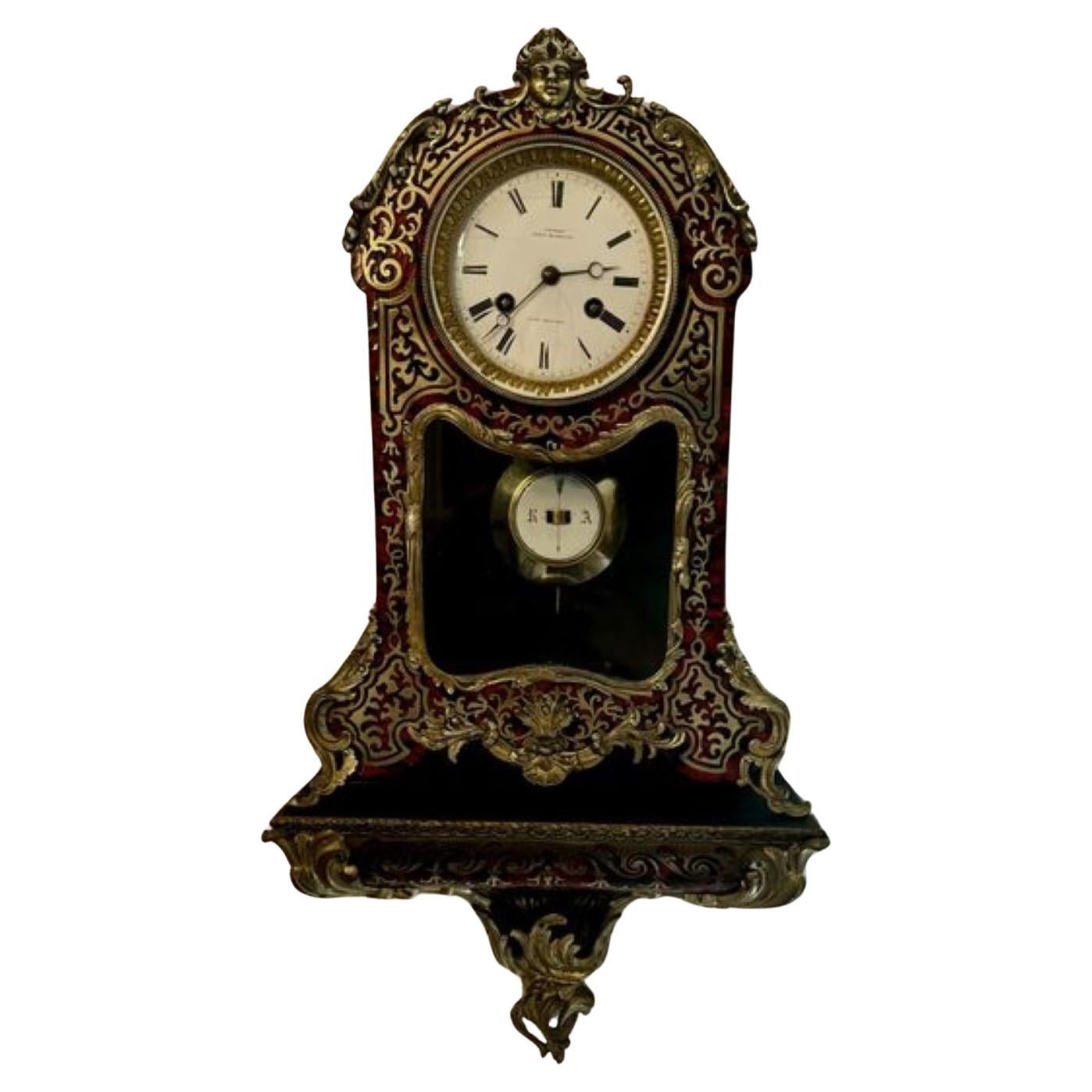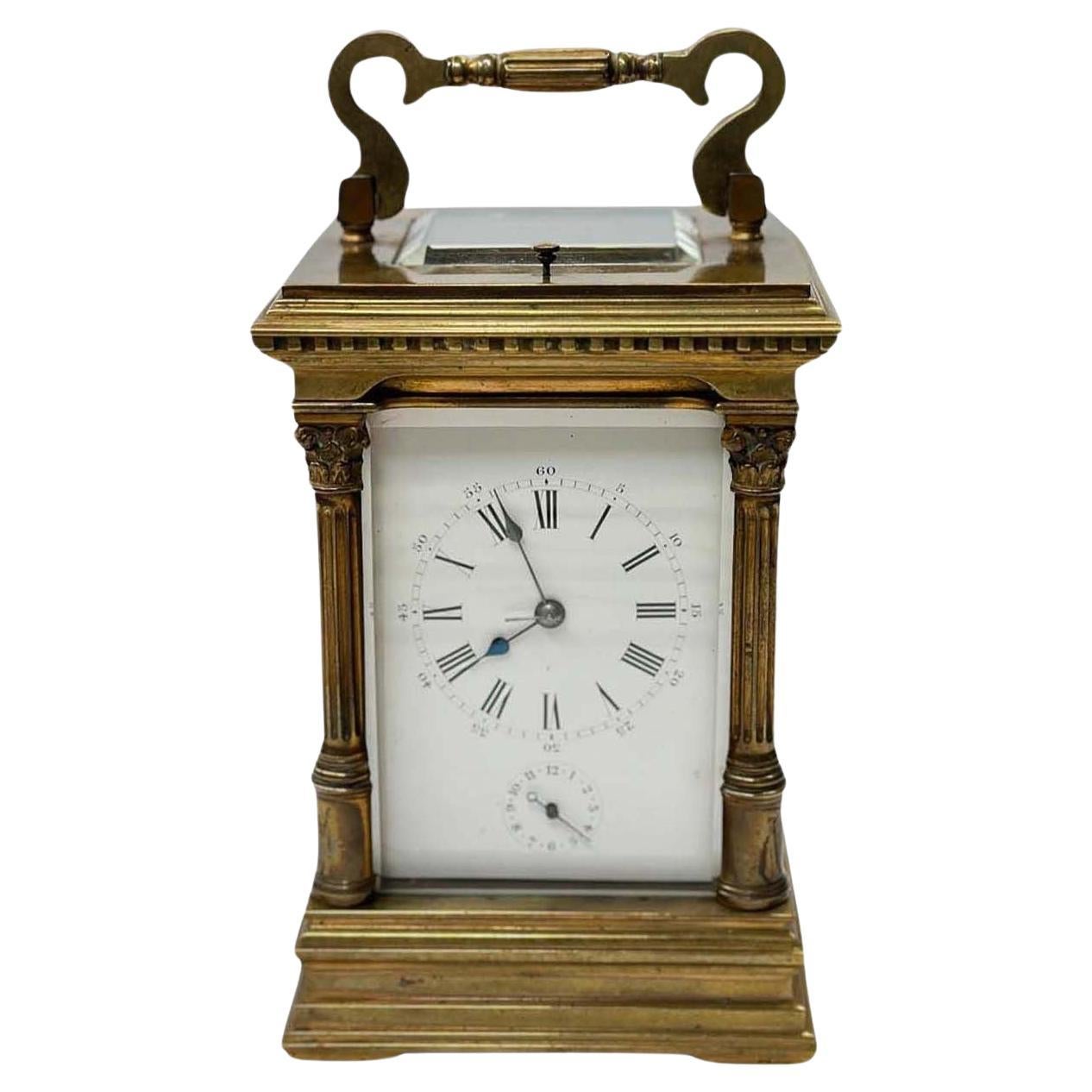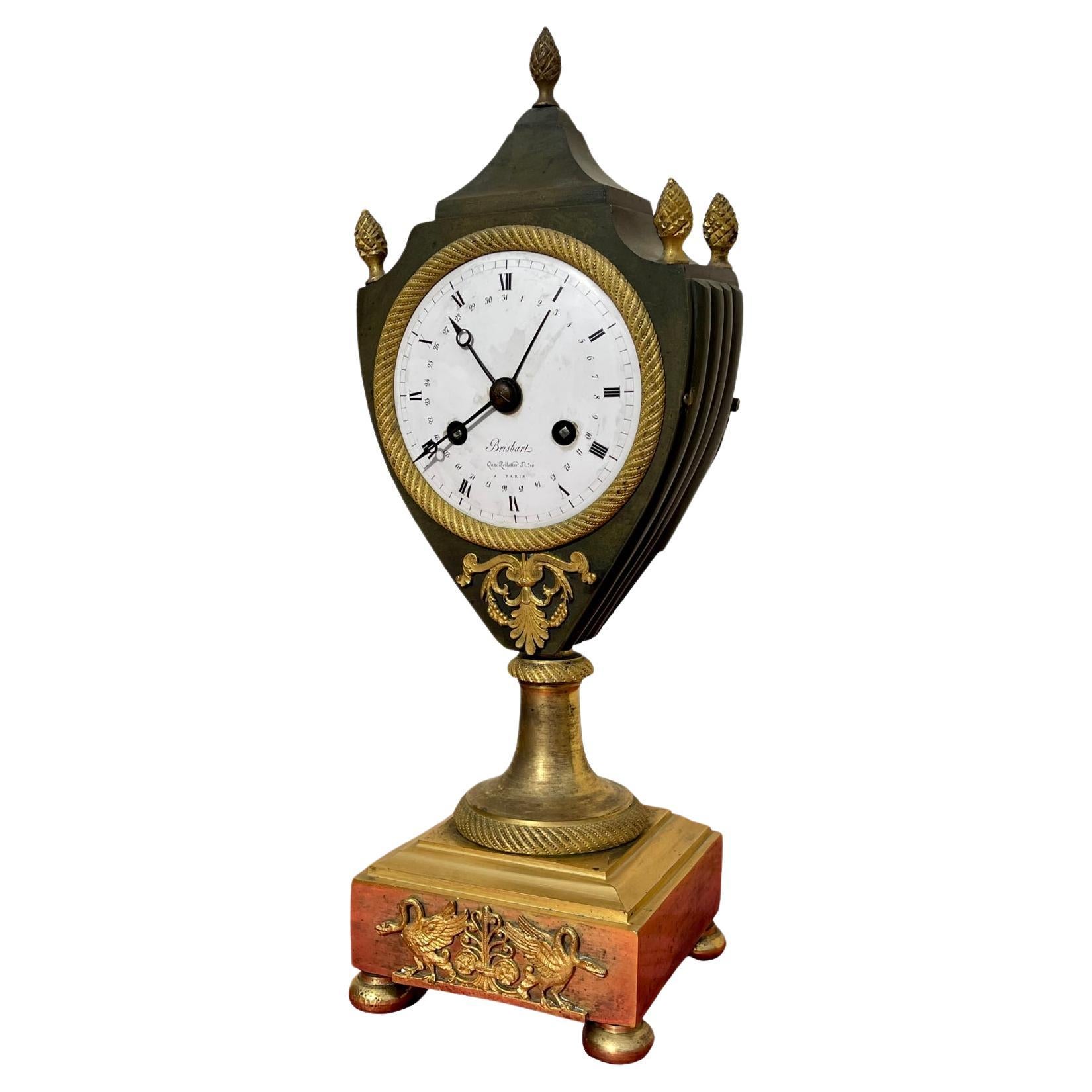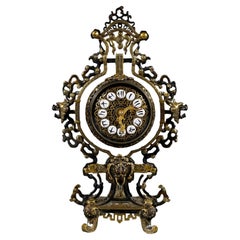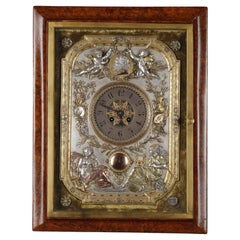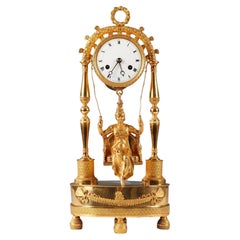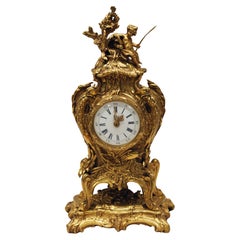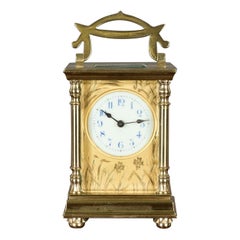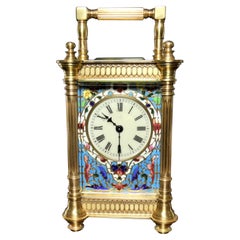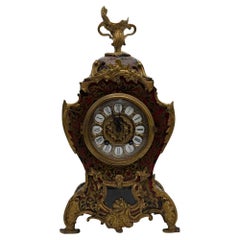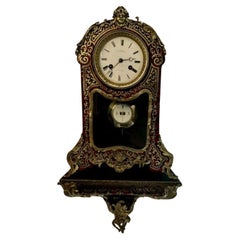Items Similar to Aesthetic Movement Carriage Clock, France, 19th Century
Want more images or videos?
Request additional images or videos from the seller
1 of 10
Aesthetic Movement Carriage Clock, France, 19th Century
$4,112.46
£3,139.05
€3,500
CA$5,799.66
A$6,371.96
CHF 3,330.03
MX$75,990.91
NOK 42,167.14
SEK 39,282.24
DKK 26,676.72
About the Item
Fine aesthetic movement clock in cloisonné enamel and gilded bronze, decorated with polychromed birds and flowers, and geometric gilded ornaments on a blue ground. The dial is covered by a beveled glass and the gilded bronze sides of the clock imitate bamboo.
- Dimensions:Height: 7.88 in (20 cm)Width: 5.12 in (13 cm)Depth: 4.34 in (11 cm)
- Style:Aesthetic Movement (In the Style Of)
- Materials and Techniques:
- Place of Origin:
- Period:
- Date of Manufacture:19th century
- Condition:Wear consistent with age and use. Mechanism must be checked.
- Seller Location:PARIS, FR
- Reference Number:Seller: 1206/01stDibs: LU3860330343392
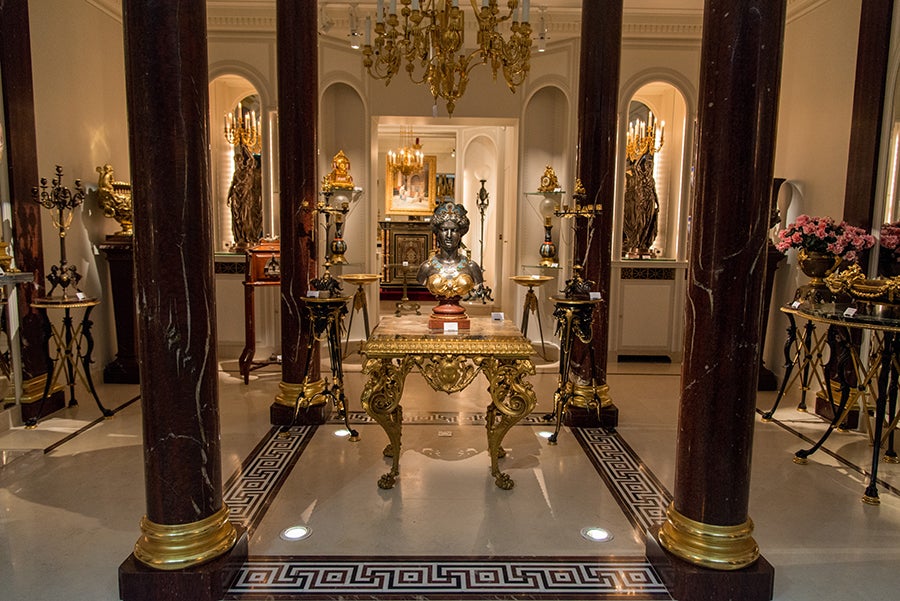
About the Seller
4.9
Gold Seller
Premium sellers maintaining a 4.3+ rating and 24-hour response times
Established in 1997
1stDibs seller since 2018
90 sales on 1stDibs
Typical response time: 2 hours
Associations
International Confederation of Art and Antique Dealers' Associations
- ShippingRetrieving quote...Shipping from: PARIS, France
- Return Policy
More From This Seller
View AllJapanese Style Clock attr. to L'Escalier de Cristal, France, Circa 1885
By L'Escalier de Cristal
Located in PARIS, FR
Rare Japanese clock in double patina bronze with suspended dial.
The portico and dial, with calligraphic Kanji numerals complemented by hands featuring an undulating dragon, are deco...
Category
Antique 1880s French Japonisme Mantel Clocks
Materials
Bronze
Easel Clock, Signed Elkington & Co, England, Circa 1890
By Elkington & Co.
Located in PARIS, FR
Signed Elkington & Co
Numbered Rd 92173
Beautiful rectangular table clock executed in gilded and silvered electrotyped metal, decorated in relief with butterflies, music instrume...
Category
Antique 1890s English Table Clocks and Desk Clocks
Materials
Metal
$17,389 Sale Price / item
20% Off
Free Shipping
Ormolu Clock "with a Swing", France, circa 1820
Located in PARIS, FR
Very fine floral and decorated Restauration period ormolu clock, figuring two baluster columns joint together by a floral arch, and topped by a crown of roses. Roman numbers indicate...
Category
Antique 1820s French Restauration Mantel Clocks
Materials
Bronze
"The Source" Gilt bronze Clock attr. to L. Messagé & F.Linke, France, circa 1890
By François Linke
Located in PARIS, FR
Charming clock in the shape of a Rocaille-inspired cartel in chiseled and gilded bronze. Scalloped marine-inspired decor representing a trophy with oars, dolphins, reeds and flowers ...
Category
Antique 1890s French Rococo Revival Table Clocks and Desk Clocks
Materials
Bronze, Enamel
G. Denière, "Pendule à cage", France, circa 1860
By Henri Picard, Guillaume Denière
Located in PARIS, FR
Large and rare Louis XVI style cage clock in chiseled and gilded bronze, rectangular in shape, highlighted with friezes of water leaves and pearls, with glass panels decorated with t...
Category
Antique 1860s French Louis XVI Mantel Clocks
Materials
Bronze
$45,237 / item
Fine Neo-Greek Clock Set by H. Houdebine, France, Circa 1867
By Henri Houdebine
Located in PARIS, FR
Dial signed H. Houdebine, Fabricant de Bronzes, Rue de Turenne 64, Paris
and clockwork signed Japy Frères & Cie – Médaille d’Honneur
A very fine neo-Greek style clock set made up of...
Category
Antique 1860s French Greek Revival Table Clocks and Desk Clocks
Materials
Bronze
$10,339 Sale Price / set
29% Off
You May Also Like
French Art Nouveau Style Carriage Clock
Located in Norwich, GB
Art Nouveau brass Carriage clock with decorative handle, standing on a raised, stepped base and resting on turned brass feet.
Beautifully decorated gilded dial mask, enamel dial ...
Category
Antique Early 1900s French Carriage Clocks and Travel Clocks
Materials
Brass
French Carraige Clock with Champleve Decoration
Located in Norwich, GB
French brass cased carriage clock with bevelled glass, fluted pillars and decorative fretwork to all three sides and to the back of the case, surmounted ...
Category
Antique 1890s French Carriage Clocks and Travel Clocks
Materials
Brass
Clock in "Boulle" Style, Early 20th Century
Located in Roma, IT
This beautiful Clock in "Boulle" Style was realized in the early century.
Kienzle Manifacture.
In working order.
Good condition.
Category
Early 20th Century Italian Table Clocks and Desk Clocks
Materials
Metal, Brass
Antique 19th century quality French boulle bracket clock with original bracket
Located in Ipswich, GB
Antique 19th century quality French boulle bracket clock with original bracket, Fantastic quality boulle bracket clock inlaid with brass and ormolu moun...
Category
Antique Early 19th Century French Wall Clocks
Materials
Brass, Ormolu
French Early 20th Century Carriage Clock by A. Dumas
Located in Los Angeles, CA
Stunning French brass carriage clock with glass protection by A. Dumas. It is designed with four fluted columns, a dial plate with Roman numerals and more minutes above an alarm sett...
Category
Early 20th Century French Carriage Clocks and Travel Clocks
Materials
Bronze
Brisbart In Paris - Empire Period Clock
Located in Beaune, FR
Early 19th century Empire period vase-shaped clock in gilded and patinated bronze. It rests on a square base decorated with a frieze representing chimeras. The vase rests on a golden...
Category
Antique 19th Century French Empire Table Clocks and Desk Clocks
Materials
Bronze
More Ways To Browse
19th Century Aesthetic Movement
Polychrome Bird
Aesthetic Movement Bronze
Glass And Gold Bamboo Table
Antique Clock Movement Antique Clocks
French Clock Movement
Antique French Clock Movement
French Enamel Carriage Clocks
Cloisonne Clocks
Antique Cloisonne Clock
Cloisonne Enamel Clock
Quartz Vintage Clock
Large Table Clock
Mechanical Clocks
Antique Pocket Clock
Brass 8 Day Clock
Clocks Made In France
Golden Clock
